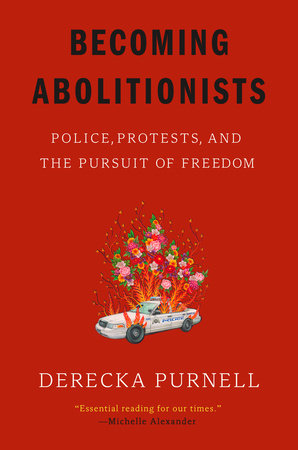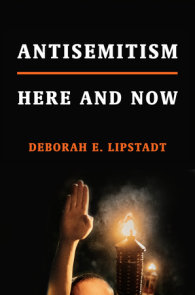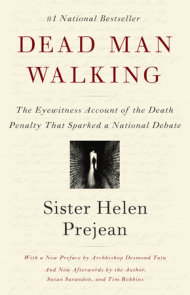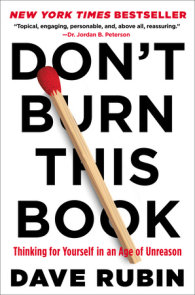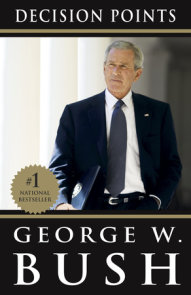TEACHING GUIDE
DISCUSSION AND WRITING
1. In Becoming Abolitionists, Derecka Purnell shares her own initial skepticism about police abolition. What was it about her experience that made her doubtful? When and why did her beliefs about the system begin to change?
2. What is your own experience with policing, whether personally, socially, or culturally? What was your introduction to policing? How does your experience inform the way you approach the concept of police abolition?
3. In the introduction, Purnell writes, “This is not a ‘how-to’ book on becoming an abolitionist. This is an invitation to share what I have been pushed to learn in developing the politics of abolition; this is an invitation to love, study, struggle, search, and imagine what we have around us to make this possible, today.” How has her journey challenged or aligned with your own experiences, teachings, and beliefs? In what ways did the book spark your imagination of how abolition might look for your community?
4. Purnell argues that policing cannot be reformed because the institution is not broken but rather effectively executing its original purpose. How are the origins of policing reflected in the behaviors we see today? How does our understanding of the purpose of policing inform our efforts toward social change?
5. In chapter 1, Purnell gives a brief synopsis of the development and function of policing, from the wake of slavery to the present. What are some of the purposes police have served in the midst of struggles such as the movement to abolish slavery, the civil rights movement, and the Ferguson uprisings? What role did you see police play during the 2020 uprisings?
6. Over the course of her journey, Purnell’s thinking on what justice looks like evolved, writing: “Growth requires us to constantly evaluate the ideas we hold dear” (92). Purnell frequently acknowledges ways in which her understanding of policing and other issues has changed and developed over time—for example, Purnell explains her journey from organizing for the arrest of George Zimmerman to believing that arrests and prosecutions do not lead to justice. What beliefs about policing or justice do you hold now that you didn’t a couple years ago? What do
you want to explore further in the coming years?
7. Purnell notes that Michael Brown was killed by Darren Wilson, who claimed that he first stopped Brown for jaywalking. Why were people likely to walk in the streets in Ferguson? What does this suggest about the link between physical space, infrastructure, and criminalization? How does a focus on place and space expand the scope of abolitionist demands? What are some features of your hometown that either encouraged or prevented criminalization?
8. In sharing some of the conversations she had while organizing, Purnell shows how important it is to unpack the root causes of harm. Think about the harms that most worry or frighten you in your community. What might their root causes be, and what might be some ways to address them? Are there ways you already see your community addressing the sources of harm or harmful behaviors without the police?
9. People experiencing mental health crises are disproportionately subjected to police violence. What systems might be set up to prevent these situations, and what systems might present better, safer response options should a crisis occur?
10. In times of protest and uprisings, Purnell explains in chapter 3, government leaders often turn to the same scripts. What is this script? Have you seen leaders use such a script? How did this script reemerge during the 2020 uprisings? How was the response to the 2020 uprisings different from uprisings in the past?
11. What are some of the problems with popular police reforms in the wake of protests, such as body cameras, “community policing,” and increasing diversity of police forces? Why are these responses inadequate? How do they affirm, rather than challenge, police power?
12. Purnell discusses W. E. B. Du Bois’s and Angela Davis’s concept of abolition democracy and the competing visions of abolition democracy. What were these competing visions? Which one won out? What were the consequences?
13. What is the prison industrial complex? Why is it important that we include policing in our analysis of the PIC and mass incarceration?
14. In chapter 4, Purnell offers a distillation of police abolition as praxis from Rachel Herzing, naming four connected pathways to making police obsolete. What are they? Do you feel drawn to one?
15. What are some of the ways Purnell responds to and reframes common questions from those who are skeptical of abolition, such as “What about the murderers?” or “What about the rapists?” What might you say if someone asked you the same questions?
16. In chapter 6, Purnell discusses some organizations that are working to intervene in genderbased violence and violence against queer and trans people. Which of these models and efforts did you find compelling? Are there anti-violence efforts happening near you? What are some of
the ways you’ve seen people intervene in violence against women and LGBTQ people?
17. What was the Harriet Tubman Collective’s critique of the first version of the Movement for Black Lives platform? Why must disability justice be a central framework for abolitionists? How does policing not only target disabled people but also create disability?
18. How do environmental racism and climate change increase police violence? How is police abolition an integral part of climate justice? What cycle of events does Purnell describe in California leading both to the burning of the forest and the state’s reliance on incarcerated
laborers to “solve” it?
19. What does it mean for abolition to be “red, black, and green”?
20. When Derek Chauvin was found guilty of the murder of George Floyd, Purnell writes, “We will never know what justice for him might look like because justice requires the participation of the impacted. The dead cannot participate.” What do you think justice might look like in the face of police violence? And, in general, when harm occurs?
21. What are the five (or six!) features of Purnell’s vision for neighborhoods? Which of these does your neighborhood have? What would you add?
22. How did you think about abolition when you began reading Becoming Abolitionists? How was that understanding changed, challenged, or reinforced? What are you taking away from this book?
REVIEWS
“This book will open up your sociopolitical imagination and leave you optimistic about what is possible when we commit to safety for all.”
—Brea Baker, Elle.com
“An informed, provocative, astute consideration of salvific alternatives to contemporary policing and imprisonment.”
—Starred Review, Kirkus
“Part memoir, part essay, and part argument, Becoming Abolitionists is an organizing tool itself, inviting in skeptics and offering a bridge to committed activists in other movements.”
—Lyra Walsh Fuchs, Dissent
“Far from avoiding the tough questions, Purnell dives in headfirst. Drawing from history, she deftly connects the roots of violence to the racial and economic hierarchies police are charged with maintaining, arguing that precarity cannot be eradicated by the people who are paid to protect it. Becoming Abolitionists is ultimately about the importance of asking questions and our ability to create answers. And in the end, Purnell makes it clear that abolition is a labor of love—one that we can accomplish together if only we decide to.”
—Nia Evans, Boston Review
“Drawing upon a Black radical tradition of social movements, Becoming Abolitionists reveals the power of self-study, collective political education, and resistance to reform efforts to inspire a new generation of activists. Purnell offers a persuasive and warm invitation to us all to deliver on the promise
and potential of abolition.”
—Aida Mariam Davis, Stanford Social Innovation Review
“[Purnell] draws convincing parallels between the past and the present to demonstrate that today’s policing systems are vestiges of this oppressive framework … She is in such command of her material [that] even if you disagree with her, you are compelled to listen.”
—The Guardian (UK)
“Through deft historical research, political analysis, and gutting prose, the book uses a variety of approaches to map Purnell’s complex and fulfilling political evolution.”
—The Cut
“Part memoir, part political and social commentary, the St. Louis native’s genre-bending book demonstrates her road to adopting abolitionist politics and makes the argument for why the new abolitionism — the push to end prisons and policing in the United States — ought to be the future of the country.”
—Kovie Biakolo, Essence
“Bold and utopian, yet grounded in Purnell’s experiences and copious evidence of how reform efforts have fallen short, this is an inspiring introduction to a hot-button topic.”
—Publishers Weekly
“Packed with glimmering moments of poetic clarity and power. Purnell has gifted us a book that is engaging, textually rich, clear in voice, driven, even paced, astutely researched, necessary and damn good. A must read.”
—Darnell Moore, author of No Ashes in the Fire
“[For Derecka], abolition isn’t just about taking away the institutions that give people an illusion that everyone is being kept safe when they’re actually not – it’s about building new structures that remove the need for these violent and oppressive systems to begin with.”
—Tayo Bero, The Guardian
“Becoming Abolitionists received a starred Kirkus review for its insight into the problematic nature of policing, including constitutional policing—that which upholds the U.S. Constitution and individual civil rights. Purnell highlights her evolution from cop-caller to abolitionist and dissects the violence in policing culture.”
—Nia Norris, Kirkus Reviews
“While her narrative is densely fact-packed throughout, Purnell is able to deftly lead the reader through the ins and outs of the abolitionist mindset so that it is clear and comprehensible for all, including those who, like her, might be initially skeptical.”
—Booklist
“It’s been amazing having you here, and your book is twice as amazing as the conversation because you can have it for so much longer.”
—Trevor Noah, The Daily Show
“With deep insight and moral clarity, Purnell shares her compelling journey of political education and personal transformation, inviting us not only to imagine a world without police, but to muster the courage to fight for the more just world we know is possible. Becoming Abolitionists is essential reading for our times.”
—Michelle Alexander, bestselling author of The New Jim Crow
“Becoming Abolitionists is part memoir & part manifesto for our times. Beautifully written, the book takes the reader on a personal journey from the Midwest to South Africa with a pit stop in New England. As a member of the ‘Trayvon Generation,’ Derecka offers us invaluable insights into how young activists are navigating and challenging current injustices. If you’ve been curious about the modern abolitionist movement, this book is a must read!”
—Mariame Kaba, bestselling author of We Do This Til We Free Us
“At once specific and sweeping, practical and visionary, Becoming Abolitionists is a triumph of political imagination and a tremendous gift to all movements struggling towards liberation. Do not miss its brilliance!”
—Naomi Klein, bestselling author of The Shock Doctrine and This Changes Everything
“Derecka Purnell has one of the most exciting minds of a generation, and Becoming Abolitionists gives us all an excuse to praise her. This book is an explosion of deep intellect matched with great love, showing a journey toward radical politics that embraces the messiness. Derecka does not expect we all wake up and become abolitionists immediately–it didn’t happen that way for her–but by showing both her intellectual and emotional path toward abolitionist thinking, she provides a roadmap that is also compassionate to those moving in a slower lane. But with an argument rooted in history, criticism guided by deep care, and writing that pulses with urgency, Becoming Abolitionists will convince you that is exactly what we all need to do before you even put the book down.”
—Mychal Denzel Smith, bestselling author of Invisible Man Got The Whole World Watching and Stakes Is High
“Derecka Purnell’s writing is freeing and draws you. Becoming Abolitionists is a beautiful invitation to understand what is possible if we commit to unlearning our dependence on police and address the underlying injustices that cause harm in our communities. This is the book we have been waiting for and knew we needed to advance abolitionist efforts. Purnell is the abolitionist writer of her generation.”
—Bettina Love, author of Abolitionist Teaching
“One of the most perceptive and passionate thinkers of any generation, Derecka Purnell, has written a genuinely revolutionary text for our times—one that resists easy answers or solutions and never shies from the hard questions. She proves that abolition is not an event or a utopian dreamstate, but rather a journey of assembly struggling to create new worlds of freedom as we fight the unfree world we inhabit. Beautifully written, passionate, honest, Becoming Abolitionists charts a journey we all must take if we plan to survive, let alone live together.”
—Robin D.G. Kelley, author of Freedom Dreams: The Black Radical Imagination
“With the elegant prose of a gifted storyteller, the acumen of a seasoned organizer, and the sharp-edged wit of a radical legal scholar, Purnell takes us on the powerful journey to police abolition in her new book, Becoming Abolitionists. It is a must read for anyone serious about understanding this moment, and the ongoing Black freedom movement.”
—Barbara Ransby author of Ella Baker and the Black Freedom Movement
“In this moving and mind-expanding meditation on the nature and possibility of justice, Derecka Purnell—a self-professed member of the ‘Trayvon generation’—traces her personal journey from her hometown of Saint Louis, Missouri to the frontlines of a global movement against racism and police brutality. A true philosopher, Purnell gleans wisdom at every opportunity, studying and struggling whether she’s in a law school seminar or protesting in the street, in a courtroom defending a client or visiting a nail salon. Being radical, this wonderful book reminds us, doesn’t mean having all of the answers—it means constantly questioning, listening, learning, and being willing to reassess and grow. Becoming Abolitionists brilliantly lays out the connections between policing and other forms of oppression and shows why even well-meaning “reforms” won’t get us where we need to go. This profound, urgent, beautiful, and necessary book is an invitation to imagine and organize for a less violent and more liberatory world. Everyone should read it.”
—Astra Taylor, author of Democracy May Not Exist but We’ll Miss It When It’s Gone
“For those skeptics of abolition, this brilliant, revolutionary book will take you on a breathtaking journey to the other side. As Derecka makes clear, abolition is not just about firing cops and closing prisons; it’s about eliminating the reasons people think they need them. If you read any book this year – read this. It’s a radiant and practical blueprint for the new world.”
—V (formerly Eve Ensler) author of The Vagina Monologues and The Apology
“Becoming Abolitionists is a vital resource for anyone committed to the struggle for social justice, written by one of the sharpest and most inspiring voices to emerge in a generation. Taking readers on a journey from her childhood in St. Louis to the protests in Ferguson, the halls of Harvard, the streets of Soweto and beyond, Derecka Purnell’s heart-rendering analysis gives us the tools to envision a new society with endless possibilities. Even more, Purnell’s extraordinary blend of personal memoir, history, and critical theory provides a roadmap to build a safer and more just world. Like the Autobiography of Angela Davis, Becoming Abolitionists is sure to remain an essential text for decades to come.”
—Elizabeth Hinton, author of America on Fire and From the War on Poverty to the War on Crime
“An extraordinary, wonderful, insightful, and immensely generative book that makes the case for abolitionist thinking, amplifying the self-activity of the masses already in motion, and at the same time providing a thoroughly absorbing and captivating description of the author’s own journey. Rather than encouraging each of us to brand ourselves as radical, Purnell points us toward the collaborative acts of co-creation and accompaniment that can make revolutionary change possible. She incorporates decoloniality, feminism, Indigeneity, environmental justice, and disability activism organically into her critiques and solutions. One of the most exciting, inspiring, and enlightening books I have read in a long time.”
—George Lipsitz, author of The Possessive Investment in Whiteness
“Derecka’s book provides a front row seat to how a generation of young people have been radicalized by a series of contradictions living within the heart of global empire: the United States. She explains, with powerful stories and brilliant analysis, how she has committed herself to abolition in the context of ongoing collective study and struggle. The abolition she discusses is anti-capitalist and anti-colonialist, committed to racial, economic, and gender justice. A call to not simply tear down prisons and police, but to build a society where our collective needs prevail over profit and punishment. This book is more than a front row seat, it is an invitation to join the most important movement of our time.”
—Amna Akbar, Professor of Law, The Ohio State University
“Purnell is undoubtedly one of the most important writers and activists of our generation, offering us a vivid, moving and compelling book for anyone interested in one of the most urgent issues of our times. Purnell weaves experiences of racism and resistance to articulate a blistering critique of racial capitalism, state power and imperialism, taking readers on a journey towards the radical alternatives to police and prisons which have shaped Black political movements in the 21st century.”
—Adam Elliott-Cooper, author of Black Resistance to British Policing
“At once an account of the life and education of an already extraordinary young life and a sharp and searching effort to remake our society in the image of abolition democracy and the movement that began in Ferguson, this book is, in the end, more than a book. It is an act of radical love.”
—Walter Johnson, award-winning author of The Broken Heart of America and Soul By Soul
“Becoming Abolitionists is a wise and passionate argument for the urgency of first responders without guns. Purnell takes on the hardest questions with analytical rigor and common sense. This is abolition for the people.”
—Paul Butler, MSNBC Legal Analyst and Author, Chokehold: Policing Black Men
OTHER TITLES OF INTEREST
On policing
David Correia and Tyler Wall, Police: A Field Guide
Adam Elliott-Cooper, Black Resistance to British Policing
Stuart Schrader, Badges without Borders: How Global Counterinsurgency Transformed American Policing
Kristian Williams, Our Enemies in Blue: Police and Power in America
Paul Butler, Chokehold: Policing Black Men
Alex S. Vitale, The End of Policing
Jordan T. Camp and Christina Heatherton (editors), Policing the Planet: Why the Policing Crisis Led to Blacks Lives Matter
Mariame Kaba, We Do This ’til We Free Us: Abolitionist Organizing and Transforming Justice
Andrea J. Ritchie, Invisible No More: Police Violence Against Black Women and Women of Color
Radley Balko, Rise of the Warrior Cop: The Militarization of America’s Police Forces
On anti-carceral feminism and transforming harm
Emily L. Thuma, All Our Trials: Prisons, Policing, and the Feminist Fight to End Violence
Ann Russo, Feminist Accountability: Disrupting Violence and Transforming Power
Ejeris Dixon and Leah Lakshmi Piepzna-Samarasinha (editors), Beyond Survival: Strategies and Stories from the Transformative Justice Movement
Judith Levine and Erica R. Meiners, The Feminist and the Sex Offender: Confronting Sexual Harm, Ending State Violence
Molly Smith and Juno Mac, Revolting Prostitutes: The Fight for Sex Workers’ Rights
Creative Interventions (editor), Creative Interventions Toolkit: A Practical Guide to Stop Interpersonal Violence
INCITE! Women of Color Against Violence (editor), Color of Violence: The INCITE! Anthology
On LBTGQIA+ liberation
Eric A. Stanley and Nat Smith (editors), Captive Genders: Trans Embodiment and the Prison Industrial Complex
Joey L. Mogul, Andrea J. Ritchie, and Kay Whitlock, Queer (In)Justice: The Criminalization of LGBT People in the United States
Ryan Conrad and Against Equality (editors), Against Equality: Queer Revolution, Not Mere Inclusion
Keeanga-Yamahtta Taylor (editor), How We Get Free: Black Feminism and the Combahee River Collective
Emily K. Hobson, Lavender and Red: Liberation and Solidarity in the Gay and Lesbian Left
On disability justice
Liat Ben-Moshe, Decarcerating Disability: Deinstitutionalization and Prison Abolition
Keith Rosenthal (editor), Capitalism and Disability: Selected Writings by Marta Russell
Leah Lakshmi Piepzna-Samarasinha, Care Work: Dreaming Disability Justice
Talila Lewis, “Disability Justice Is an Essential Part of Abolishing Police and Prisons”
Liat Ben-Moshe, Chris Chapman, and Allison C. Carey (editors), Disability Incarcerated: Imprisonment and Disability in the United States and Canada
On climate change
David Wallace-Wells, The Uninhabitable Earth: Life After Warming
Kate Aronoff, Overheated: How Capitalism Broke the Planet—and How We Fight Back
The Red Nation, The Red Deal: Indigenous Action to Save Our Earth
Max Ajl, A People’s Green New Deal
Naomi Klein, This Changes Everything: Capitalism vs. The Climate
On faith and abolition
Joshua Dubler and Vincent Lloyd, Break Every Yoke: Religion, Justice, and the Abolition of Prisons
Laura Magnani and Harmon L. Wray, Beyond Prisons: A New Interfaith Paradigm for Our Failed Prison System
Garrett Felber, Those Who Know Don’t Say: The Nation of Islam, the Black Freedom Movement, and the Carceral State
Lee Griffith, The Fall of the Prison: Biblical Perspectives on Prison Abolition
On (settler) colonialism and the criminalization of migrants
Harsha Walia, Border and Rule: Global Migration, Capitalism, and the Rise of Racist Nationalism
César Cuauhtémoc García Hernández, Migrating to Prison: America’s Obsession with Locking Up Immigrants
Roxanne Dunbar-Ortiz, Not “A Nation of Immigrants”: Settler Colonialism, White Supremacy, and a History of Erasure and Exclusion
Nick Estes, Melanie K. Yazzie, Jennifer Nez Denetdale, and David Correia, Red Nation Rising: From Bordertown Violence to Native Liberation
Adam Goodman, The Deportation Machine: America’s Long History of Deporting Migrants
Harsha Walia, Undoing Border Imperialism
COPYRIGHT
© 2021 Astra House • Reading Group Guide for Becoming Abolitionists
ADDITIONAL RESOURCES
http://www.prisonpolicy.org
http://www.transformharm.org
http://www.micahherskind.com/abolition-resource-guide
×
Become a Member
Just for joining you’ll get personalized recommendations on your dashboard daily and features only for members.
Find Out More Join Now Sign In






